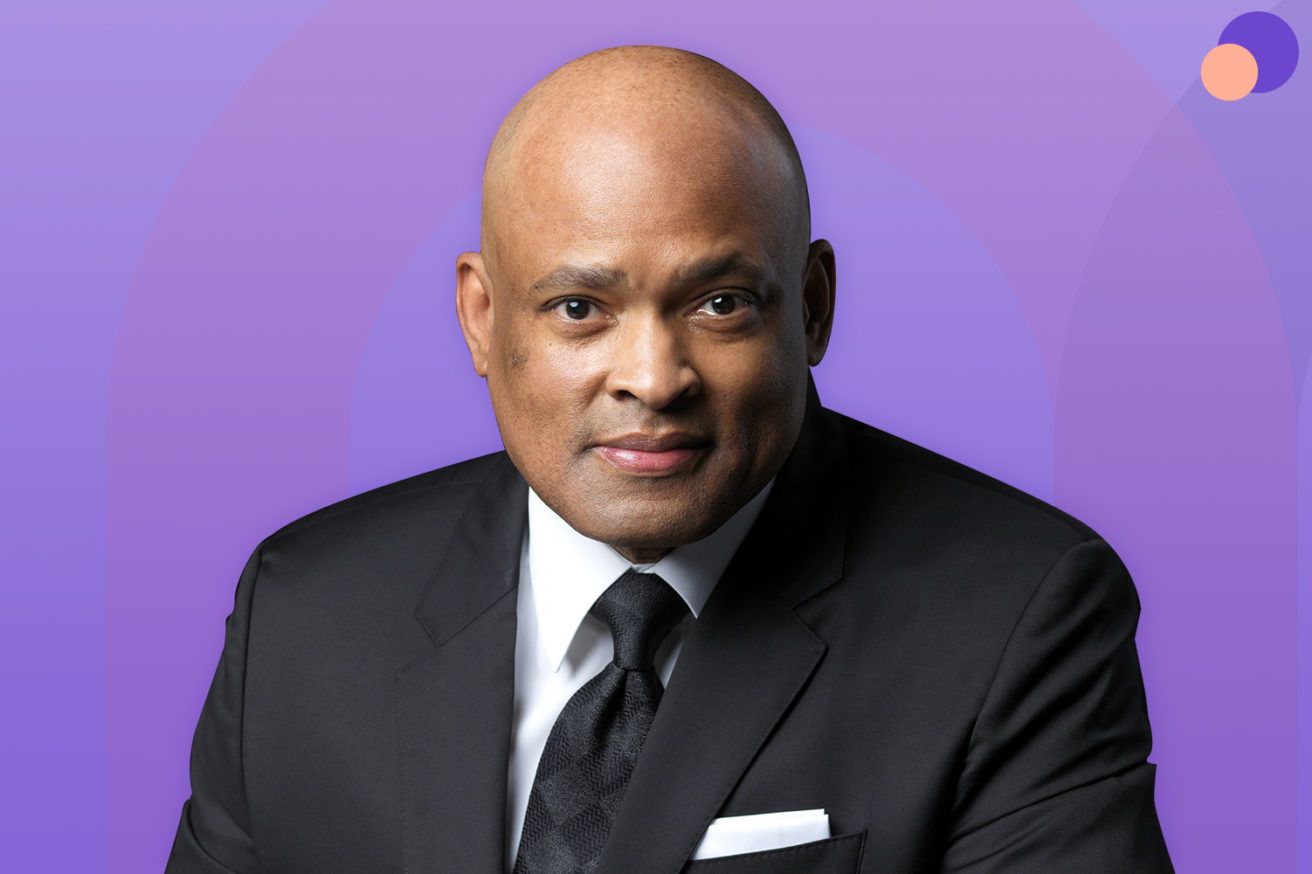
Unlearning in leadership: How to let go of outdated thinking and foster sustainable leadership
Leaders are under exceptional pressure in our era of accelerated change. COVID-19 has pushed many organizations to go through decades of change in a single year. Yet the majority of us don’t have much faith in our leaders. In fact, only 15% of executives across the world are confident that their leaders can deliver, according to the Odgers Berndtson Leadership Confidence Index.
“We have a leadership crisis—leaders are basically out of touch with their people,” says Kenneth-Maxwell Nance. Kenneth-Maxwell is a leadership scholar-practitioner (scientist), with over 40 years of experience, with 21 years in the world’s largest organization. He is certified speaker, coach, and trainer with the John Maxwell Team, headed by a mentor John C. Maxwell, a bestselling author, and top leadership expert.
“We have a leadership crisis—leaders are basically out of touch with their people.”
In this article, Kenneth-Maxwell shares what assumptions about traditional leadership we need to let go of, and how we can rethink leadership today so that it is sustainable.
Humility is an essential leadership trait
In a Howspace webinar with Kenneth-Maxwell, when we asked, “Which leadership attributes inspire your best performance?” the top three answers were: 1) respectful, 2) kindness, and 3) knowledgeable. Self-seeking got the lowest number of answers.
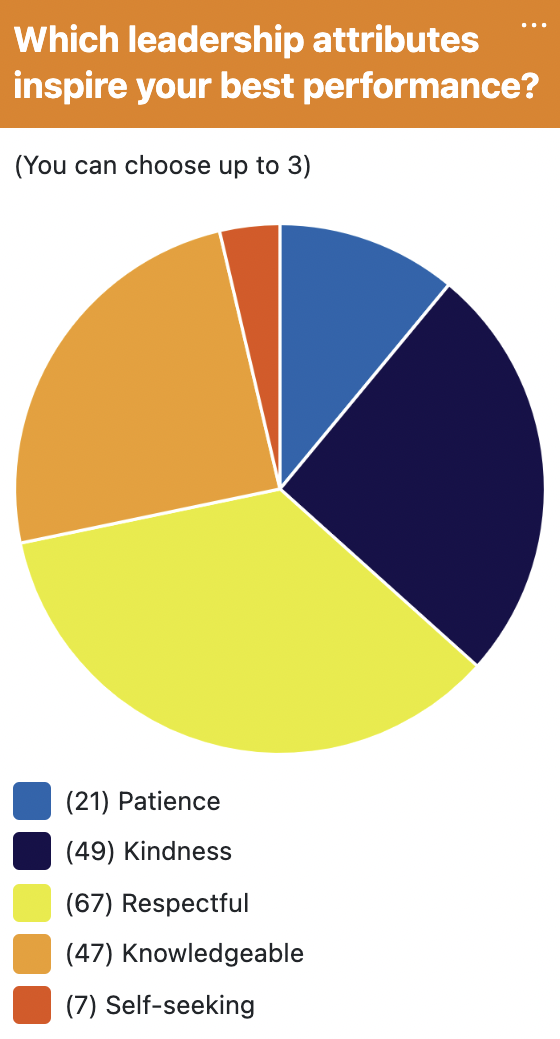
While a traditional view of leadership is position-based and involves top-down management, leadership is changing to focus on co-creation. In reality, a leader can’t have all the answers, and doesn’t need to pretend to.
Humility and empathy are fundamental qualities to foster within ourselves and our teams to build skills such as: communication, active listening, problem solving, critical thinking, teamwork, and trust.
Vulnerability is required to build a truly collaborative team. Humble leaders are brave enough to ask inspiring questions and be willing to hear all answers—even the ones they don’t like. Doing so enables genuine conversations and shows your team that you’re open to change.
Leadership is not a position—it’s a practice
Kenneth-Maxwell states, “Leadership is often conflated with position, power, and authority—sometimes that overlap does exist, but that’s not always the case.”
Leadership is not in fact about titles or positions of authority—it’s a practice. Kenneth-Maxwell brings forward the following definitions of “leader” and “leadership”:

“Definitions are important because when people are trying to learn about something, they go to definitions,” he says. “If we can define leadership in the way that it should be defined then we can develop competency models.”
Kenneth-Maxwell explains that in the Public Leadership program at Harvard Kennedy School, when considering different leaders throughout history, they ask “Is that person practicing leadership?” “That’s important because leadership is in fact a practice,” he concludes.
By defining leadership this way, it’s clear that being a manager is not a prerequisite for leadership. Anyone can practice leadership—whether in the home or within an organization.
Great leaders focus on listening rather than being heard
We asked participants in the Howspace webinar with Kenneth-Maxwell “What concerns do you have about the state of leadership in the world?” Here is the summary from Howspace’s AI:
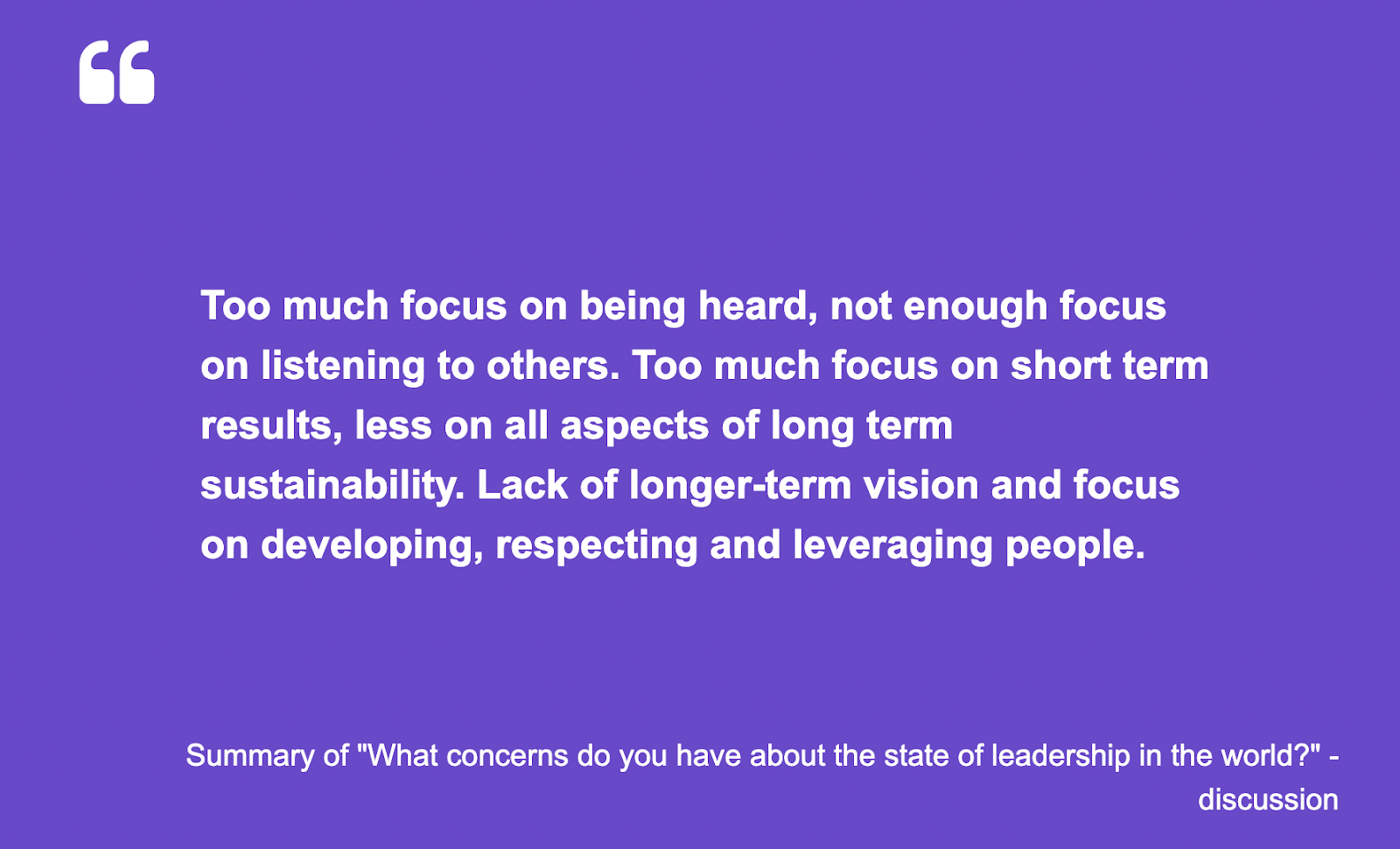
Leaders not listening to employees is a huge concern. As we saw with the backlash against Apple’s recent return-to-work policy, there is often a disconnect between how leaders and employees view issues at work. Apple employees wrote in their letter to CEO Tim Cook, “Over the last year we often felt not just unheard, but at times actively ignored. […] It feels like there is a disconnect between how the executive team thinks about remote / location-flexible work and the lived experiences of many of Apple’s employees.”
Listening and inclusion needs to be at the heart of all strategic work. Great leadership requires actively listening to all voices within an organization. In our hybrid world, it’s important to have the right tools that allow leaders to create a safe place for collaboration, where all people feel seen and heard.
As Stephen Covey wrote, “Most people do not listen with the intent to understand; they listen with the intent to reply.” By listening to people with the intent to understand, leaders show respect and can better focus on long-term sustainability.
Leadership is a moral undertaking
As Kenneth-Maxwell succinctly puts it, “the right use of knowledge is power.” He continues, “Leadership is a moral undertaking. We’re not telling anyone that you must be moral, but what I am suggesting is simply this: If you want to have responsibility and authority over people, you at least need to commit to the moral development of yourself for their sake, for your organization’s sake.” Ultimately, it’s important for leaders to use the right knowledge in the right way. Research shows that without moral approaches, degradation and harm enter, contributing to failure at various levels.
“When you do things right, your people are going to feel it, you’ll see it in their performance.”
Morality and ethics are seen as extremely important to leadership, as we see by the poll results in a Howspace webinar.
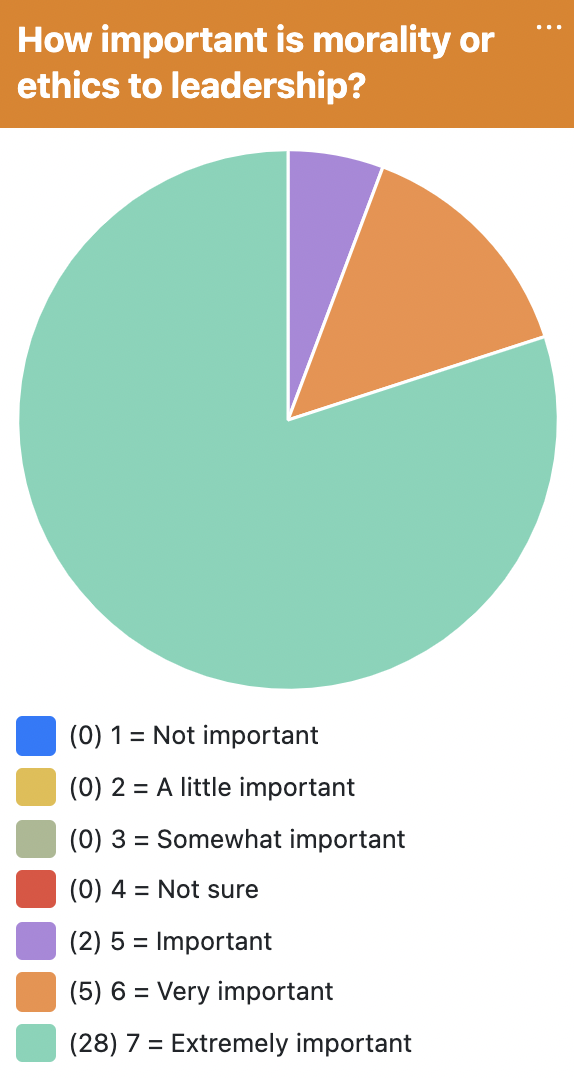
Some people refer to “business ethics” as if there was another set of ethics for businesses specifically. But businesses are made up of people, and only people can have ethics. It’s up to us to be ethical to create ethical businesses.
“When you do things right, your people are going to feel it, you’ll see it in their performance,” says Kenneth-Maxwell.
The only real leadership failure is giving up
Making mistakes as a leader is a given—it’s how you handle those mistakes that set you apart as a great leader. Challenges in leadership present opportunities to gain people’s trust.
Acknowledging mistakes, learning from them, and sharing those learnings with your team will help build connection and trust.
Kenneth-Maxwell sums up, “Leadership failure is when you give up the practice, or the relationship cannot continue, not when one does not accomplish goals.”
If you want to learn about implementing organizational change in a digital environment, download your free copy of our guide How to Effectively Implement Organizational Change in a Digital Environment.
You might be interested in these as well
View all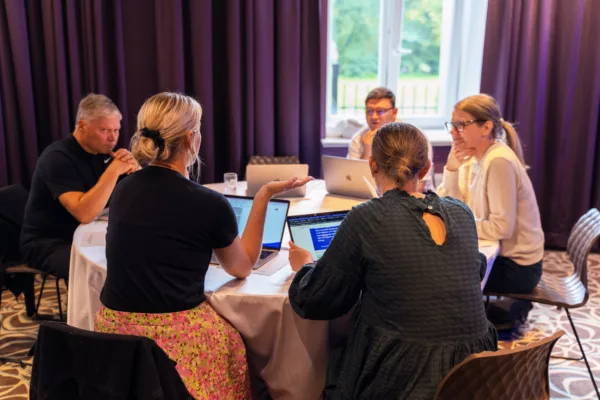
Make Your Decision-Making More Inclusive and Effective
Participatory decision-making taps into the collective wisdom of your entire workforce. Here’s how to make more impactful decisions in your organization.

The best change management tools for successful organizational transformation
Embracing change within organizations can be challenging, as people naturally resist it. However, utilizing the right change management software can […]

Top 7 Virtual Organizational Transformation Strategies
When it comes to organizational transformation strategies and how to effectively lead change in a virtual environment, my pro tip […]
You might be interested in these as well
View all
Make Your Decision-Making More Inclusive and Effective
Participatory decision-making taps into the collective wisdom of your entire workforce. Here’s how to make more impactful decisions in your organization.

The best change management tools for successful organizational transformation
Embracing change within organizations can be challenging, as people naturally resist it. However, utilizing the right change management software can […]

Top 7 Virtual Organizational Transformation Strategies
When it comes to organizational transformation strategies and how to effectively lead change in a virtual environment, my pro tip […]